
From the Dragon Boat Regatta in Broome to the Orange Mardi Gras festival on the other side of the country, community events are being cancelled and emergency services are struggling to cope as the number of volunteers plummets.
The trend has triggered soul-searching among community groups and charities — is it a temporary blip linked to the COVID pandemic, or have Australians become more selfish?
“What we’ve seen is a longer-term decline in volunteering rates, and that’s been amplified by the COVID pandemic,” Volunteering Australia CEO Mark Pearce says.
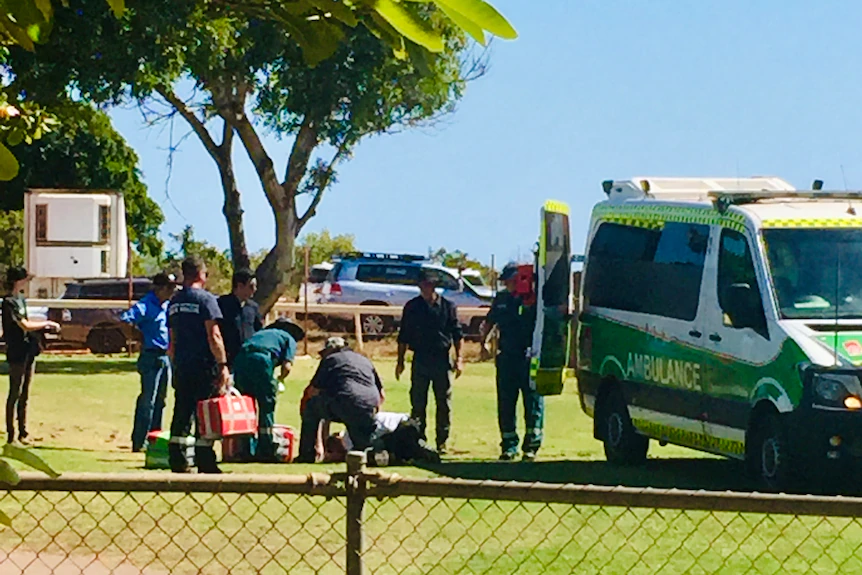
“There are also changes in how people want to volunteer and participate — there’s increasing demand for flexibility that doesn’t necessarily correlate with the structure of formal volunteering programs.”
The 2021 census data recorded a 19 per cent drop in volunteering since the last snapshot in 2016. The finding is backed up by more regular, in-depth social surveys done by the ABS.

The biggest decline has been recorded in the 15-24 year old age group, the same age group posting an increasing number of controversial ‘good deed’ stunts on social media.
The depletion of the volunteer brigade is affecting sports clubs, emergency services and long-established organisations like Rotary and Lions, that help run events and raise funds for local charities.
Country towns suffering
The impact is most noticeable in regional areas, where event organisers and first-responders are more likely to be unpaid.
As a result, some events are being cancelled, such as the annual Dragon Boat Regatta in Broome.

It has been a popular fixture in the town for almost 20 years, and raises tens of thousands of dollars for charity. But this year there weren’t enough people to organise or run it.
“The practical impact in regional and remote Australia is that social activities and the cohesion that takes place by community coming together is lost or significantly reduced,” Mr Pearce says.
“And that has implications for the livability of these communities in which people choose to spend their lives.”
The Dragon Boat Regatta is usually organised by the local Rotary chapter, which currently has only a handful of members.
It is hoping to find enough local people to help with the nine-month organising process to revive the regatta in 2023.
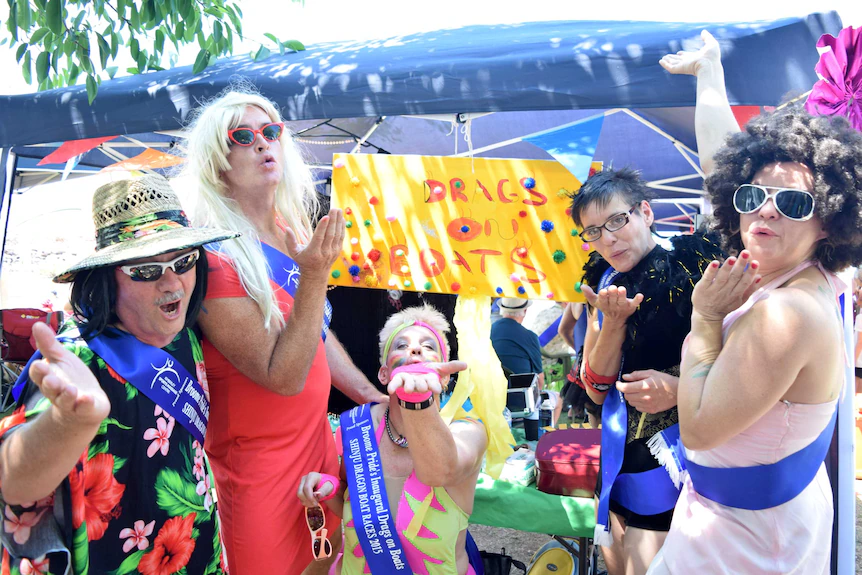
Events struggling across the country
Meanwhile in Alice Springs, organisers are struggling to pull together enough volunteers to hold the beloved Henley-on-Todd Regatta, which raises money for local Rotary Club projects.
Every August, teams of people race on the dry Todd River in boats without bottoms in front of a crowd of about 4,000 people.
Secretary Ron Saint said getting the right number of volunteers had been “tenuous”.
“We would like to have 130 but we’ve got about a hundred. So we’re at that point where we’d like to have 12 people doing a certain role but we’ll have nine or eight,” he said.
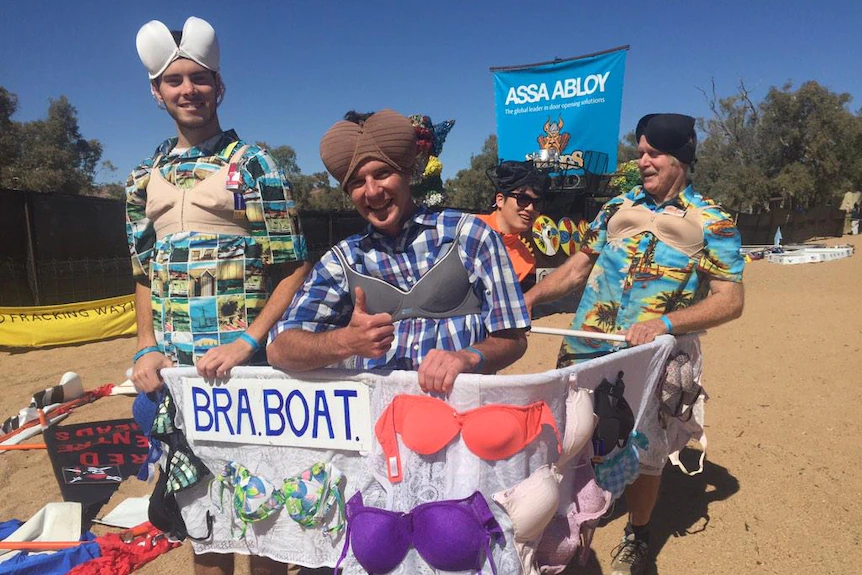
“It’s not going to stop the event … but you’d want a few more [people] in case someone can’t make it.”
Mr Saint believed some people who might volunteer were now trying to make up for paid work lost during COVID lockdowns.
“People are time poor and as we try to get the economy kick started again it’s difficult to commit the discretionary time for volunteer work,” he said.
In March, a proposed inaugural Mardi Gras celebration in Orange, in central west New South Wales, was cancelled for the third year in a row when the small team of people organising the Rainbow City Festival event became “exhausted” from repeatedly having to postpone it.
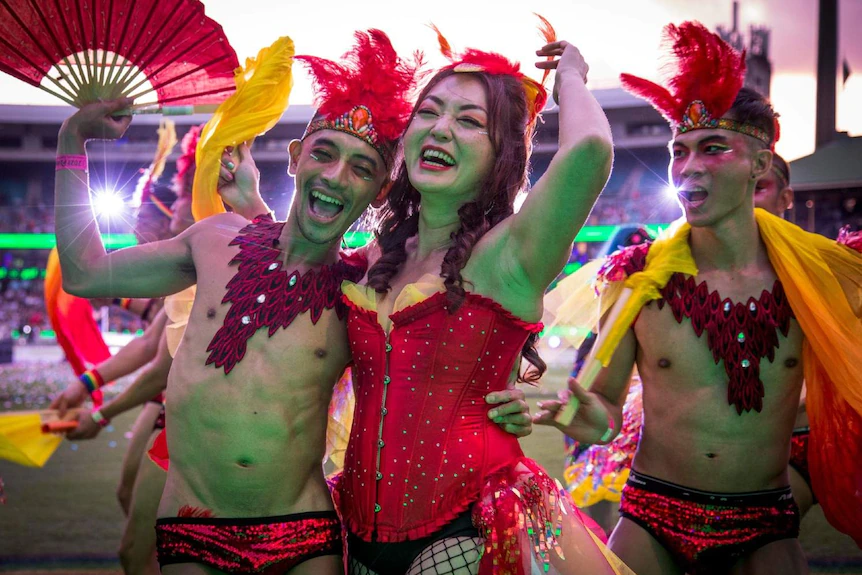
What’s causing the decline?
Australian Bureau of Statistics data shows that people aged 40 to 54 are most likely to volunteer.
Women and men participate at a similar rate, with the greatest number of people volunteering with sporting clubs and religious groups.
People living in remote areas are most likely to volunteer, but the rates in regional and urban areas are almost identical.
Social researcher Hugh Mackay has been monitoring Australian attitudes and lifestyle habits for six decades.
“This is a weird period we are in at the moment, that helps explain the decline of volunteering,” he says.
“We’ve been changing in ways that have made us more individualistic, much more concerned about ‘me and my rights and my entitlements and my identity’.
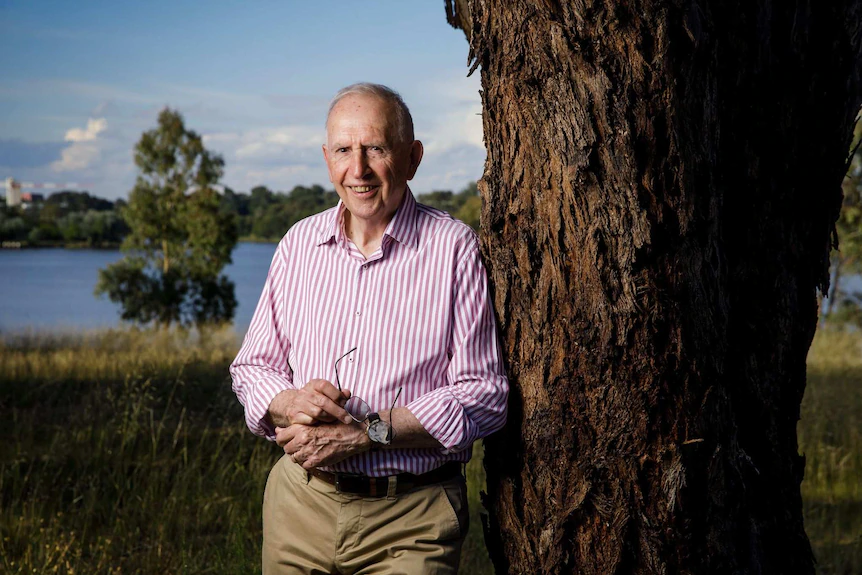
“And that’s all working against our natural proclivities to be kind and compassionate and cooperative and help each other out.
“But it’s also worth noting that organisations that want volunteers have probably not been quite nimble enough, and not understanding all these societal shifts and the changing culture.”
Dr Mackay says the main change has been a withdrawal from community involvement.
This has been caused by an increase in the use of social media to stay “connected’; people living alone; and the trend for having fewer children, resulting in fewer opportunities to develop local friendships through schools and kids’ sporting clubs.
“We’ve also become too ‘busy’, and being ‘busy’ is a kind of hiding place, a barrier between us and others,” he says.
“It’s the enemy of social cohesion and the enemy of volunteering, because as long as we can convince ourselves we’re too busy to help other people, we can get away with it – we have made being busy a virtue.”
Are young people the problem?
Dr Mackay rejects the notion that young people are too selfish to volunteer, saying a more nuanced shift has occurred.
“Millennials have grown up with a deep sense of impermanence and have adopted a mantra of ‘let’s keep our options open’,” he says.

“Committing to anything long-term runs against the ethos of this generation, so they will be happy to help out, but reluctant to join up to anything that requires a weekly meeting or a long-term program.
“One of the favourite occupations of older people through history has been to bash younger people and complain about them.
“But it’s worth remembering that the rise of individualism is not a generational phenomenon, it’s happening right across the age ranges.”
All at sea as volunteers jump ship
Some organisations are adapting by asking people to help out with one-off events, or ramping up social media recruitment campaigns.
But sometimes the challenge is retaining the volunteer recruits who do sign up.
In the waters off Broome, it is a matter of life or death — every few weeks the volunteer Sea Rescue team is called out to save a sinking or stranded vessel.
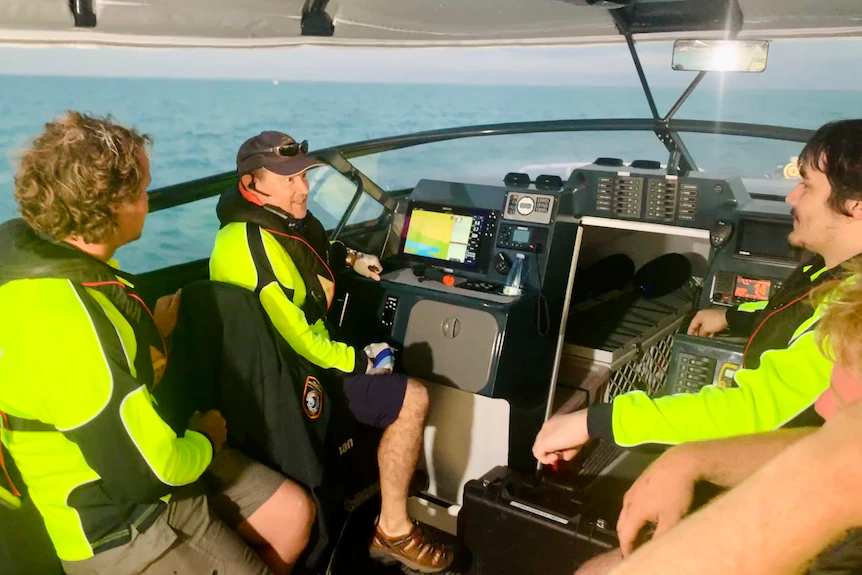
Skipper Gareth Owen says cyclones, crocodiles and big tides make it a hazardous job.
“It’s vital we’re able to crew the vessel, because the calls can come at any time,” he says.
“It’s always very close as to whether we have enough people.
“It’s a major problem, because we’re low on numbers and the commitment to training is quite high, so it can be difficult to maintain people’s enthusiasm.”
Mr Owen, who originally signed up to learn marine skills with his young son, says he’s not surprised the latest census data shows a drop in volunteer numbers.
“I think we’ve seen over the past few years that some people have become a bit more self-centred and they don’t go out as much because of COVID,” he says.
“So I guess a lot of people have prioritised family, and that has put pressure on volunteers groups like us.”
Annie Stephenson has been volunteering with the group for two years, and coordinates recruitment.

Ms Stephenson says a recent advertising campaign attracted more than 20 people, but the numbers dropped away as they realised the commitment involved.
“It’s one thing to recruit people, but retaining them can be hard,” she says.
“Because there’s so much training involved, we’re looking for people who can commit for two years minimum, but people’s circumstances change, they’ll get a new job or have family commitments, which is totally understandable.
“The key thing for us is to have a big enough pool of qualified crew to share the load and fatigue management, and to make sure people don’t get burnt out.”
One of the new recruits is 18-year-old Byron Schaffer.
He says he doesn’t know many people his age who volunteer regularly.

“I think some teenagers see it as something that ‘adults’ do, people who are a bit more settled down,” he says.
“I really enjoy it, it’s something to do in your free time that makes you feel good.”
What does the future hold?
Volunteering Australia says there has been a small increase in participation rates this year, following the easing of COVID restrictions.
But they are still well short of the volunteer numbers of five years ago.
Volunteer skipper Gareth Owen hopes recent natural disasters might prompt Australians to sign up and offer their time and expertise.
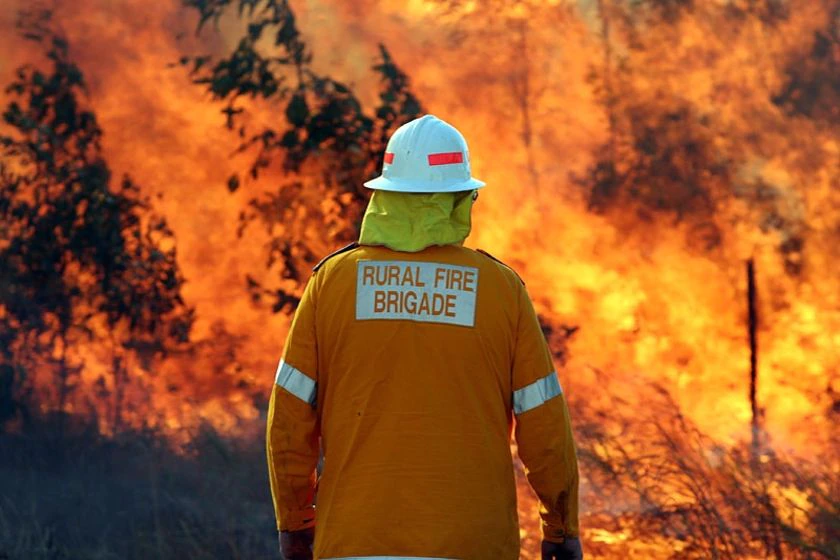
“With the floods and the firefighters you see so many awesome volunteers doing things, and I think people forget they are volunteers because they’re doing such an excellent job and they’re at it for so long,” he says.
“Sometimes people might think it’s part of the service we get for being Australian, and not realise we need to put our hand up and look out for each other by volunteering.”
Dr Mackay, now aged 83, remains optimistic.
“I think this rise of individualism marks a really weird, aberrant period in human history, and it’s not actually who we are,” he reflects.
“I think our true nature as communitarians, cooperators, and kind and compassionate people who look out for each other will re-emerge.”
“The pendulum is going to swing back, I am sure of it.”
Additional reporting Steven Schubert








